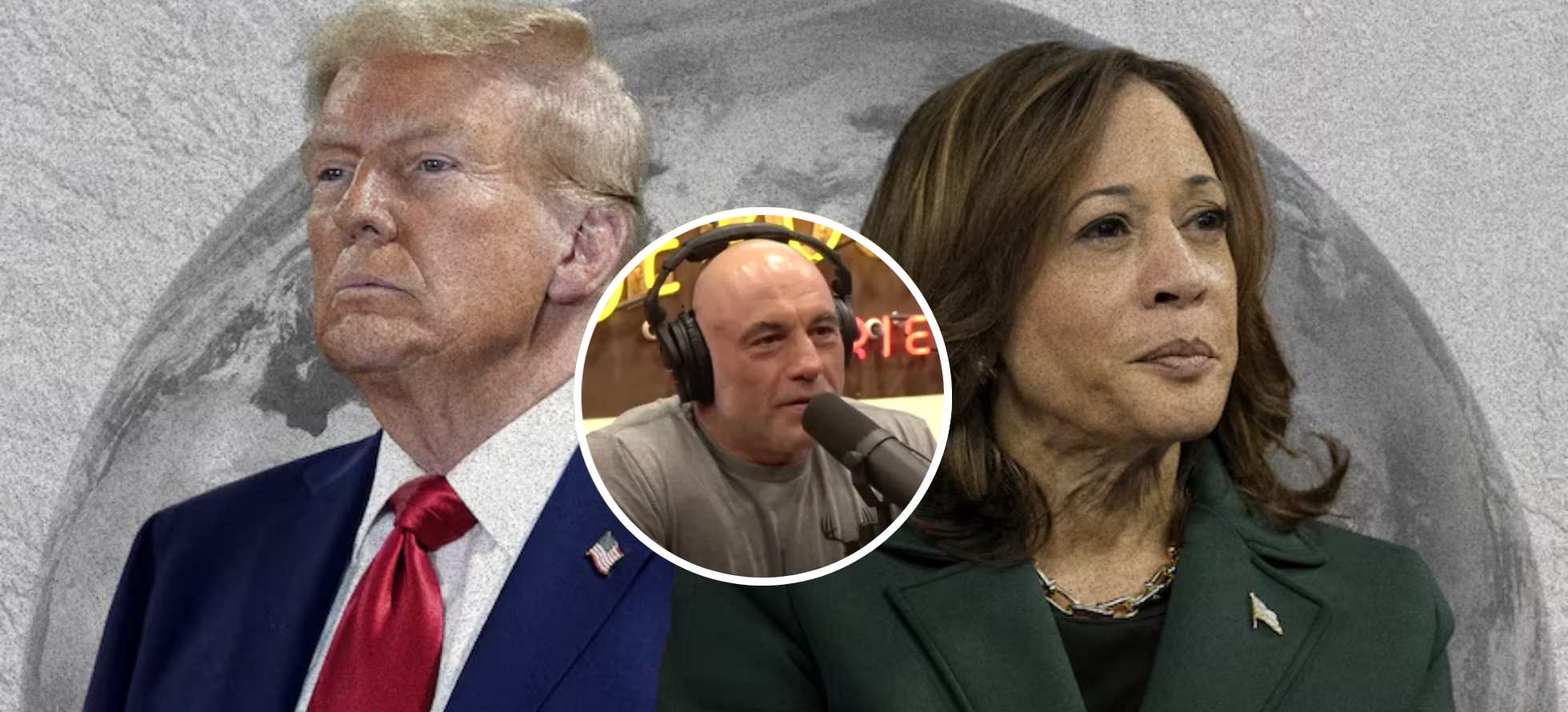A recent conversation between content creators Travis Chappell and Julian Dorey has sparked discussion about how the Democratic Party lost one of its most valuable media assets—Joe Rogan—through its own missteps and rigid orthodoxy.
The 2024 presidential election marked what many are calling “the podcast election,” where long-form conversations proved more influential than traditional media appearances. When Donald Trump appeared on The Joe Rogan Experience, the episode garnered approximately 45 million views within 48 hours.
In contrast, Vice President Kamala Harris‘s appearance on Call Her Daddy—one of the largest podcasts with a predominantly female audience—struggled to reach even a million views. The disparity wasn’t merely in numbers; it represented a fundamental misunderstanding of how modern media works and what audiences value.
What makes this particularly striking is that Rogan was never a conservative firebrand. As podcasters noted in their discussion, he’s a lifelong Democrat who previously supported Bernie Sanders and hosted Tulsi Gabbard when she ran on the Democratic ticket.
Rogan built his massive audience—estimated at over 11 million audio downloads per episode even back in 2019—by having genuine, unscripted conversations with people across the political spectrum. His appeal stemmed from authenticity, curiosity, and a willingness to engage with ideas rather than talking points.
The Democratic establishment’s relationship with Rogan deteriorated not because he changed, but because the party did. When Rogan contracted COVID-19 and used ivermectin as part of his treatment protocol, CNN and other mainstream outlets mockingly referred to it as “horse dewormer,” despite it being an FDA-approved medication for humans.
When CNN’s chief medical correspondent Sanjay Gupta appeared on Rogan’s show, the host directly challenged him on this misrepresentation, forcing an uncomfortable acknowledgment of the network’s dishonesty.
This incident exemplified a broader pattern: the Democratic Party and its media allies chose to demonize rather than engage with anyone who deviated from approved narratives. The same treatment was given to Elon Musk, Tulsi Gabbard, and Robert F. Kennedy Jr.—all lifelong Democrats who found themselves pushed out by increasingly rigid ideological requirements. These weren’t conservatives infiltrating liberal spaces; they were moderates and liberals being excommunicated for asking questions or holding positions that fell outside an ever-narrowing acceptable range.
During the 2024 campaign, Harris’s team reportedly attempted to negotiate terms for a Rogan appearance that included limiting the conversation to one hour, requiring Rogan to travel to her, and potentially seeking editorial control.
For anyone familiar with how Rogan operates—smoking ca**abis in his Austin studio and having free-flowing three-hour conversations—these demands revealed a fundamental disconnect. As Julian Dorey noted, “The mere concept of like my team meeting with your team, your PR team. Bro, he smokes we*d in a studio and plays a video game outside of it, and then you show up and he says, ‘Hey, let’s go.'”
The Harris campaign’s inability to secure a Rogan appearance wasn’t merely a missed opportunity; it was a red flag that voters noticed. If a candidate can tour the country speaking to a few thousand people at arena events but won’t sit for an unscripted conversation that reaches tens of millions, what does that signal about their confidence or authenticity?
Trump, meanwhile, appeared on Rogan’s show and approximately a dozen other major podcasts, directly reaching the young male demographic that proved decisive in the election.
What the Democratic Party failed to understand is that podcasting’s power doesn’t come from production budgets or celebrity hosts, it comes from genuine connection. When political strategists immediately began discussing how to “build the left’s Joe Rogan” by throwing money at the problem, they revealed they still don’t grasp what made Rogan successful in the first place.
As the podcasters discussed, celebrities with 100 million followers have launched podcasts that pale in comparison to independent creators with far smaller initial audiences, because audiences can detect authenticity versus manufactured content.
When politicians feel unable to answer basic questions without being “backed into a corner”—whether about biological sex, immigration policy, or pandemic responses—they’ve locked themselves into positions that don’t reflect how most Americans actually think. This rigidity makes unscripted long-form conversations dangerous rather than opportunities.


